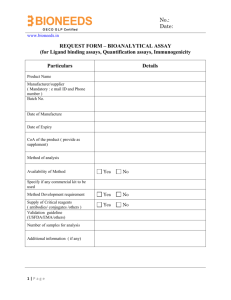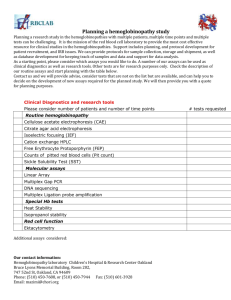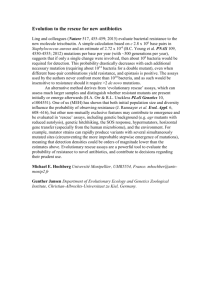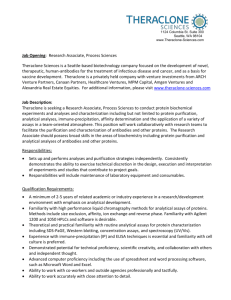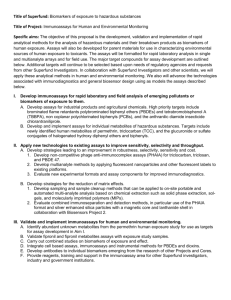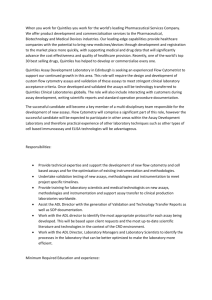CV_Zhao - Institute of Biophysics of Chinese Academy of
advertisement
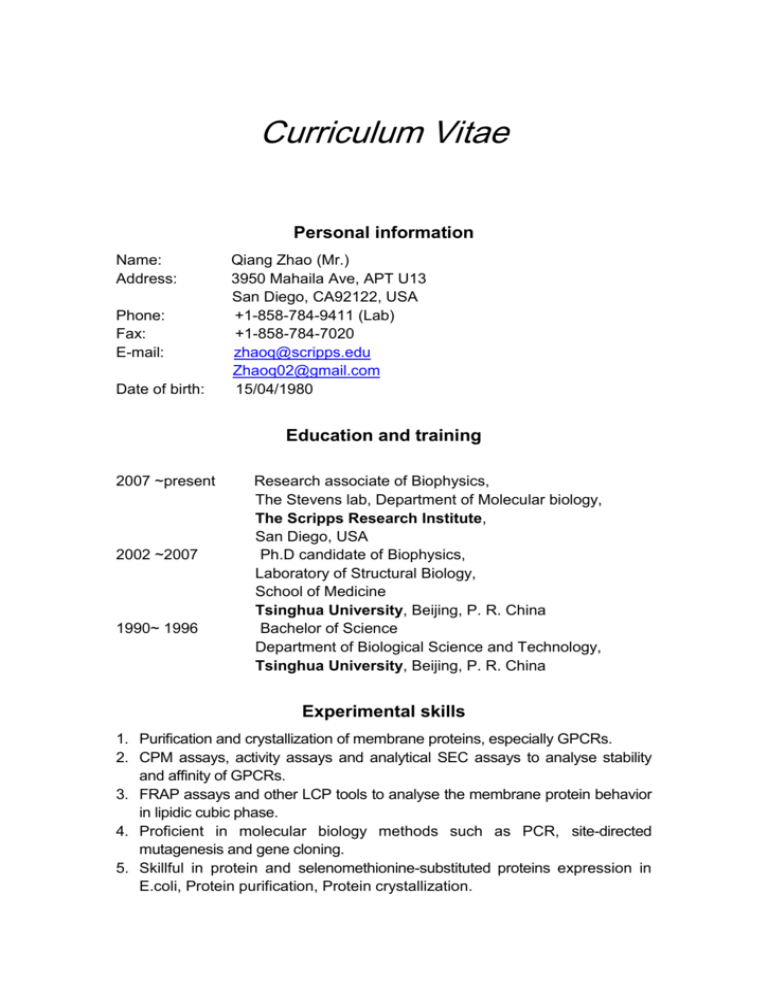
Curriculum Vitae Personal information Name: Address: Phone: Fax: E-mail: Date of birth: Qiang Zhao (Mr.) 3950 Mahaila Ave, APT U13 San Diego, CA92122, USA +1-858-784-9411 (Lab) +1-858-784-7020 zhaoq@scripps.edu Zhaoq02@gmail.com 15/04/1980 Education and training 2007 ~present 2002 ~2007 1990~ 1996 Research associate of Biophysics, The Stevens lab, Department of Molecular biology, The Scripps Research Institute, San Diego, USA Ph.D candidate of Biophysics, Laboratory of Structural Biology, School of Medicine Tsinghua University, Beijing, P. R. China Bachelor of Science Department of Biological Science and Technology, Tsinghua University, Beijing, P. R. China Experimental skills 1. Purification and crystallization of membrane proteins, especially GPCRs. 2. CPM assays, activity assays and analytical SEC assays to analyse stability and affinity of GPCRs. 3. FRAP assays and other LCP tools to analyse the membrane protein behavior in lipidic cubic phase. 4. Proficient in molecular biology methods such as PCR, site-directed mutagenesis and gene cloning. 5. Skillful in protein and selenomethionine-substituted proteins expression in E.coli, Protein purification, Protein crystallization. 6. Experienced in heavy atom soaking. 7. Structure determination including X-ray data collection and processing using HKL software, phasing with SAD, MIR and MR methods, structure refinement using CNS and CCP4 software. 8. Bioinformatics analysis of target proteins. 9. Much experience on crystallographic software such as Denzo & Scalepack, XDS, CNS, O, COOT, CCP4, solve &resolve, Molscript & Bobscript and PyMOL et al. 10. Characterization of proteins using electrophoresis (native, non-reduced, reduced and blue-native page), and analysis protein with cross-linking, western blotting and gel shift assays. 11. GST-pulldown assays in searching of the association proteins using target protein bait. Achievements During my Ph.D study in Tsinghua University, I solved the structure of spindlin1, one soluble protein with repeated domains. Using GST pull down assay, I found out that spindlin1 binds to heat shocl protein HSP70 and zinc finger protein ZNF202. I also found out that the protein binds to DNA and RNA in a non-specific manner by gel shift assays. These results are published on Journal of Biochemistry (JBC). After I got my Ph.D degree in 2007, I went to the Stevens lab as a research associate, where I started to work on membrane protein crystallization. One of my main projects is Dopamine receptor 3 (DRD3). The receptor was stabilized by fusion with T4 lysozyme and introduction of a point mutation L119W. T4 lysozyme was inserted in different positions with different lengths of linker between receptor and lysozyme. These constructs were screened by analytical SEC and CPM assays, and meanwhile I preformed activity assays to make sure that these constructs kept similar binding profiles as wild type receptor. One most stable construct was selected, and used for further purification and crystallization. With the help of FRAP assays and other LCP tools, the receptor was crystallized and structure was solved at 3.1 angstrom. These results helped a lot to the understanding of ligand selectivity inside the dopamine receptor family, and facilitate further drug discovery. Publications 1. Jiang F, Zhao Q, Qin L, Pang H, Pei X, Rao Z. Expression, purification, crystallization and preliminary X-ray analysis of human spindlin1, an ovarian cancer-related protein. Protein Pept Lett. 2006;13(2):203-5. 2. Zhao Q, Qin L, Jiang F, Wu B, Yue W, Xu F, Rong Z, Yuan H, Xie X, Gao Y, Bai C, Bartlam M, Pei X, Rao Z. Structure of Human Spindlin1: Tandam TUDOR-Like Domains for Cell Cycle Regualtion. J Biol Chem. 2007 Jan 5;282(1):647-56. Epub 2006 Nov 1. 3. Li X, Liu X, Zhao Q, Liu Y, Duan X, Rao Z. Crystallization and preliminary crystallographic studies of human coactosin-like protein (CLP). Acta Crystallogr D Biol Crystallogr. 2004 Dec;60(Pt 12 Pt 2):2387-8. Epub 2004 Nov 26 4. Wu B, Liu Y, Zhao Q, Liao S, Zhang J, Bartlam M, Chen W & Rao Z. Crystal Structure of RS21-C6, involved in nucleoside triphosphate pyrophosphohydrolysis. Journal of Molecular Biology. 2007, 367 (5): 1405-12
